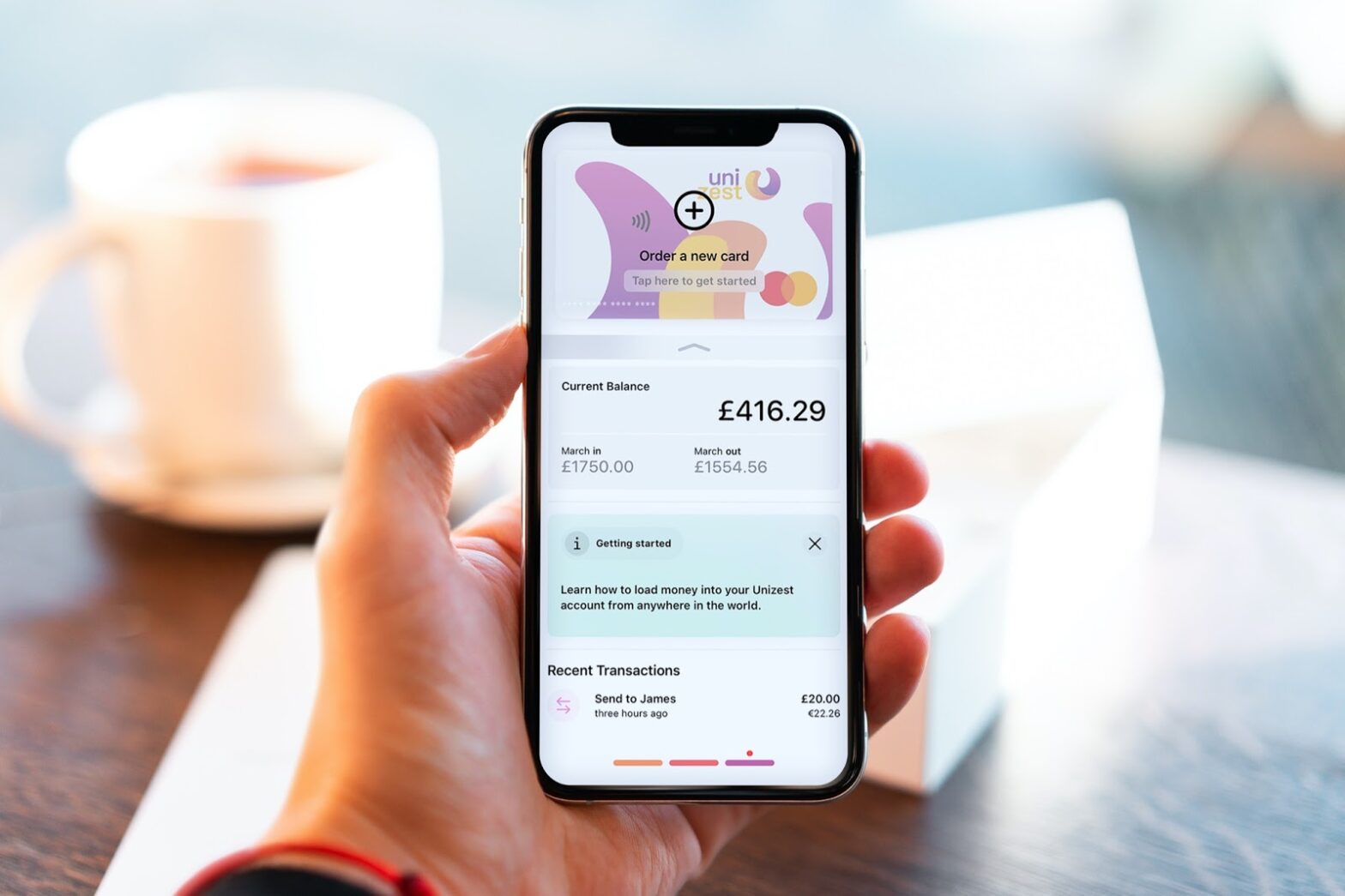An increasingly common sight when you answer your front door to take delivery of an online order is the delivery person scanning your parcel with a handheld device. Or doing an inventory stocktake in a supermarket.
Businesses increasingly rely on these handheld devices to keep on top of things, but how do businesses track these critical handheld devices? What if they’re faulty? Or if they get lost?
Adrian Lawson has 25 years’ experience in mobile technology, having worked for Hewlett Packard, Honeywell and Phones4U, among others. The Preference Hub is the platform he has developed to help businesses responsible for dozens if not hundreds of handheld devices keep tabs on them.
Only launching last spring at the height of lockdown, The Preference Hub already counts Zebra Technologies and Honeywell as partners.
What is your background as a tech entrepreneur?
I’ve mainly worked in the IT and telecoms sector in a range of sales and marketing roles. Most recently, I was the MD of a tech company in Bristol. They provided managed services for organisations with large quantities of mobile devices, mainly in the retail and supply chain sectors.
‘Entering The Start-Up Series competition was really a no-brainer’
Can you explain what managed devices are?
Managed devices are business critical handheld devices. You often see them when you receiving home deliveries as they scan the parcel on your doorstep. Or, if you go shopping, you often see one of these mobile devices being used instore for stocktaking or scanning barcodes. As they are mission critical, the need for these interconnected devices working all the time is really important for our business customers.
Where did the idea for The Preference Hub come from?
Being involved with lots of organisations that use these mobile devices, I knew that there were a number of issues which regularly came up.
One such recurring issue that came up all the time was tracking mobile devices, because they can move around from store to store or from driver to driver, they tend to be hard to locate.
And if a device isn’t working, then perhaps you can’t deliver that crucial parcel. That’s a major problem. The requirement for these devices to be working all the time is so important. If you can provide some analytics and some data that helps maximise the uptime of these devices, then it’s a really winning solution for the customer.
Of course, having the idea to launch The Preference Hub during lockdown 1.0 had its own challenges.
Indeed. What was the biggest challenge you had trying to start The Preference Hub during lockdown?
Knowing myself as I do, I am incredibly impatient. Certainly one of the things that you have to wrestle with is when you start a business, nothing just happens overnight, things take time. I was always beating myself up that I wasn’t making enough progress. So I had to kind of wrestle with my own impatience. But you do have to relentlessly pursue things. Because a ‘no’ today might mean a ‘yes’ tomorrow. And, if you keep that relentless focus, you’re going to move the business forward.
Launching The Preference Hub during lockdown must have been difficult, but has Covid affected your business in any other way?
With Covid, there’s a trade-off for us. I haven’t got a comparison for pre-Covid because, as I say, we started the business, right in lockdown 1.0. But we’re selling B2B. And we’re selling to service providers. So those relationships are really important to build. And I know that those relationships can be built better and stronger when you’re face to face — there’s only so much that you can do when you’ve got the odd phone call and the odd Zoom call. So I think there’s a trade-off where we have some limitations in not being able to get out face to face with our customers, but we do benefit from just the amount of work that you can get done from home. One day, for example, we had seven demo calls of our software. I would never have been able to do seven demo calls with customers face to face in one day.
Also when setting up a business from scratch you’re wearing lots of different hats. So the ability to work on many things in one day is definitely amplified when you’re at your desk all the time, rather than driving up and down the motorway each day.
What made you decide to enter The Start-up Series competition? What was it that appealed to you?
I’ve always been interested in what investment might do to help this business. Getting investment may enable us to make decisions that otherwise we would have had to put off. So, instead of hiring one salesperson, perhaps we can hire two. Or that software development we had planned for next year, now we can do this year. So the ability to get investment actually improves and increases the number of decisions you can make sooner rather than later.
Also, those who know me know how competitive I am, once I got into something called a ‘competition’ it was actually all about winning it! And I was pretty laser focused on making sure that we had the best value proposition and we were going to get that win at the end.
One of the things The Start-up Series competition prides itself on is mentorship and also putting you in touch with a peer community. How important was that for you?
It became increasingly important as the process went on. Because when you spend time talking to Paul Soanes and Matthew Cushen (who run Worth Capital, the engine behind the Start-up Series), you start to realise just how experienced these guys are in start-up businesses and similar software companies to mine. Actually, getting some mentoring and some support at a leadership level from these guys became very, very important for me as the process went on and something that I felt was actually going to be more valuable than the investment itself.
Another thing that I really liked was that it’s individuals who invest in The Start-Up Series competition winners, and they want a return on investment. So it gets you a little bit more ‘ focused on shareholder value, building an organisation which in three to five years is going to have some really good inherent value. And I liked that kind of mindset because it would help us really stay on point with those key things that were important to me as well.
What advice would you have for any other entrepreneurs thinking about entering the next round of The Start-up Series?
I mean, it was really a no brainer. At the very least, you’re going to be able to hone your messaging, your strategy and your pitch. All those things are a good thing, irrespective of the outcome. Just the process that you go through is really exciting and interesting. There’s some really good dialogue and debate that goes into the process. And then ultimately, there’s the opportunity to get the investment.
What milestones would you like to see The Preference Hub pass over the coming year? What KPIs do you have?
We’re really focused on a number of key milestones this year. We decided to run our new tax year from the beginning of April and we’re already well ahead of plan for Q1 and where we were expecting to be in the first quarter.
We brought on two new salespeople to the team and they’re very KPI driven and bringing on some really exciting customers and opportunities. And as a subscription business, it’s very much around building more licences to our base and getting as much value from the platform as possible. We’ve got some good milestones to build on as a result of winning The Start-Up Series.
The Start-Up Series competition
The Series opens for applications every month, with the aim to select one or two winners to receive:
• Up to £250,000 of SEIS/EIS equity funding (subject to due-diligence, terms & conditions).
• A minimum of 2 years invaluable hands-on help from experienced & battle-scarred entrepreneurs
• Media coverage on smallbusiness.co.uk & other channels to promote your business & follow your journey.
We are on the hunt for B2B or B2C business across all sectors. As long as your business is eligible for SEIS or EIS HMRC advance assurance, then we’ll consider your application.
We’ll be impressed by innovative products or services, in high growth or underserved markets, with the potential to build a loved brand. If you can demonstrate these, you’re in with a fighting chance.
Because the investment will come from an EIS & SEIS FCA regulated fund, businesses who are considering entering need to satisfy the following criteria set by HMRC:
• You must be a UK resident and run a UK-based business
• You must be over 18 years old at the time of entry
• Certain financial services and property businesses are unlikely to qualify.
Find out how to enter The Start-Up Series here
Further reading
What winning The Start-Up Series meant for me – Matt Oldham, Unizest








